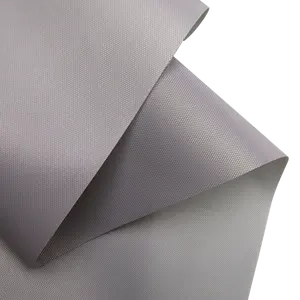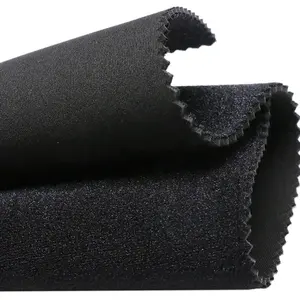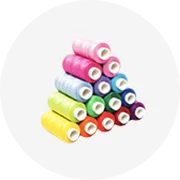Exploring Denier Ballistic Nylon
Denier ballistic nylon is a specialized fabric known for its durability and resistance to wear. This textile is a preferred choice for a variety of applications due to its high tensile strength and exceptional abrasion resistance. The term 'denier' refers to the yarn's thickness, with higher numbers indicating a thicker, more robust material. Ballistic nylon, originally developed for military body armor, has transcended its martial origins to become a staple in various civilian manufacturing sectors.
Types and Specifications
The market offers a range of denier ballistic nylon types, each tailored for specific uses. 1680 denier ballistic nylon and 1050 denier ballistic nylon fabric are among the most sought-after for their optimal balance of weight and protection. For lighter applications, 840d ballistic nylon provides a thinner option without significantly compromising durability. Each variant of the ballistic nylon denier family is engineered to cater to different demands, ensuring that there is a suitable fabric for every requirement.
Applications and Uses
Ballistic nylon's versatility extends to numerous industries. The 1680 denier material is frequently utilized in the production of heavy-duty equipment such as tactical gear and outdoor accessories. In contrast, 1000d ballistic nylon is often selected for clothing due to its excellent wear resistance and color retention, making it ideal for athletic wear that requires both flexibility and durability. The fabric's resistance to moisture and microbial growth also makes it a prime choice for travel and outdoor apparel.
Material Features and Advantages
The intrinsic properties of denier ballistic nylon include high resistance to tearing and stretching, which are essential for products subjected to rigorous use. Its ability to repel dirt and ease of maintenance are additional benefits that make 1050 denier nylon and its counterparts favorable for items like backpack linings and protective covers. Moreover, the water-resistant nature of 1680 denier ballistic fabric extends its utility to outdoor furnishings and vehicle covers, ensuring long-term protection against the elements.
Environmental and Maintenance Considerations
While denier ballistic nylon offers numerous advantages, it is also important to consider its environmental impact and maintenance. As a synthetic fabric, recycling and proper care can mitigate its ecological footprint. Regular cleaning, avoiding harsh chemicals, and following manufacturer guidelines can prolong the life of products made from 1050 denier ballistic nylon fabric and other denier grades, contributing to sustainable usage practices.
Choosing the Right Denier Ballistic Nylon
Selecting the appropriate denier ballistic nylon requires an understanding of the specific needs of the intended application. Factors such as weight, abrasion resistance, and flexibility play a crucial role in determining whether a 1000 denier ballistic nylon or a more robust 1680 denier nylon is suitable. With a variety of options available, the right choice of ballistic nylon denier can significantly enhance the performance and longevity of the final product.





































 浙公网安备 33010002000092号
浙公网安备 33010002000092号 浙B2-20120091-4
浙B2-20120091-4